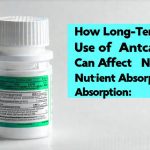Gastroesophageal reflux disease (GERD) is a surprisingly common condition affecting millions worldwide. It’s characterized by persistent heartburn, acid regurgitation, and sometimes even more subtle symptoms like chronic cough or difficulty swallowing. Many individuals find quick relief with over-the-counter antacids – those readily available tablets or liquids promising to neutralize stomach acid. While these medications can provide immediate comfort, the question arises: is it safe to rely on them long-term as a management strategy for GERD? The seemingly simple act of popping an antacid after a meal could potentially mask underlying issues and even create new ones if not approached thoughtfully.
The appeal of antacids lies in their accessibility and rapid action. They offer a temporary fix, often allowing people to continue with their daily activities without significant discomfort. However, GERD is rarely a standalone issue; it frequently stems from factors like dietary choices, lifestyle habits, obesity, or even anatomical variations. Treating the symptom – the heartburn – without addressing the root cause can lead to chronic reliance on medication and potentially delay appropriate diagnosis and treatment of more serious conditions. This article will explore the implications of long-term antacid use for GERD, examining their mechanisms, potential side effects, alternative strategies, and when seeking professional medical advice is crucial.
Understanding Antacids & Their Role in GERD Management
Antacids work by chemically neutralizing stomach acid, thereby reducing its irritative effect on the esophagus. They don’t prevent acid production; they simply lessen its impact once it’s already present. There are several types of antacids available, differing slightly in their active ingredients and how quickly they act. Common ingredients include calcium carbonate (like Tums), magnesium hydroxide (Milk of Magnesia), aluminum hydroxide, and sodium bicarbonate (baking soda). Each has a different profile regarding side effects and interactions with other medications. For example, calcium-based antacids can sometimes cause constipation while magnesium-based ones may lead to diarrhea. Sodium bicarbonate contains high levels of sodium, which could be problematic for individuals monitoring their salt intake.
The temporary relief offered by antacids can be incredibly valuable for occasional heartburn or indigestion. They’re suitable for episodic symptoms triggered by specific foods or situations. However, GERD is often a chronic condition requiring ongoing management. Relying solely on antacids to manage persistent GERD symptoms isn’t ideal because they don’t address the underlying cause of acid reflux. This can lead to individuals taking larger doses more frequently, potentially masking serious issues like esophageal damage or complications. Furthermore, long-term use can result in dependence – both psychological and physiological – making it difficult to discontinue them without experiencing rebound acidity.
Antacids are generally considered safe for short-term use, but prolonged reliance raises concerns. While they provide symptomatic relief, they don’t address the fundamental problem of acid reflux or protect the esophagus from continued damage. Other medications, like proton pump inhibitors (PPIs) and H2 receptor antagonists, target acid production itself and often offer a more sustainable approach to GERD management – though these also require careful consideration and medical supervision as long-term use carries its own set of risks. It’s important to remember that antacids are tools for occasional symptom relief, not long-term solutions for chronic GERD. Perhaps considering best time to take probiotics could help support overall gut health alongside managing GERD symptoms.
Potential Risks of Long-Term Antacid Use
Long-term, excessive antacid consumption can lead to several unintended consequences beyond the immediate side effects associated with their ingredients. One significant risk is mineral imbalance. Calcium carbonate antacids, for example, while helpful in neutralizing acid, can contribute to hypercalcemia (excess calcium in the blood) if used excessively over extended periods. Similarly, aluminum-containing antacids can potentially lead to aluminum toxicity, particularly in individuals with kidney problems. Magnesium hydroxide, although generally well-tolerated, can cause severe diarrhea and dehydration in high doses. These imbalances are rarely life-threatening but can significantly impact overall health and wellbeing.
Another concern is the possibility of rebound acid hypersecretion. When the body detects consistently neutralized stomach acid due to frequent antacid use, it may respond by increasing acid production to compensate. This creates a vicious cycle where individuals become dependent on antacids just to prevent symptoms caused by their own bodies reacting to the medication. It’s akin to creating a tolerance – the more you take, the less effective it becomes and the harder it is to stop.
Finally, masking GERD symptoms with long-term antacid use can delay diagnosis of more serious underlying conditions. Chronic acid reflux can erode the esophageal lining, potentially leading to Barrett’s esophagus – a precancerous condition. By simply neutralizing the acid without addressing the root cause, antacids allow this damage to continue unnoticed, increasing the risk of complications down the line. Ignoring persistent GERD symptoms is never advisable. Understanding safe condiments can also help minimize irritation and support better gut health.
Alternatives to Long-Term Antacid Use
Fortunately, numerous alternatives exist for managing GERD that don’t involve long-term reliance on antacids. Lifestyle modifications are often the first and most effective step. These include: – Dietary adjustments: Avoiding trigger foods (spicy foods, fatty foods, caffeine, chocolate, alcohol, acidic fruits/vegetues) – Weight management: Losing weight if overweight or obese – Elevating the head of your bed: This helps prevent nighttime reflux – Eating smaller, more frequent meals: Reduces pressure on the stomach – Quitting smoking: Smoking weakens the lower esophageal sphincter.
Beyond lifestyle changes, various medications are available to address GERD effectively. H2 receptor antagonists (like ranitidine and famotidine) reduce acid production but have a shorter duration of action than PPIs. Proton pump inhibitors (PPIs), such as omeprazole, lansoprazole, and pantoprazole, are more potent at suppressing acid secretion and are often prescribed for moderate to severe GERD. However, even PPIs require careful monitoring by a healthcare professional due to potential long-term side effects.
Furthermore, surgical options exist in some cases of severe or refractory GERD. Fundoplication, for example, strengthens the lower esophageal sphincter, preventing reflux. This is typically reserved for individuals who haven’t responded to other treatments and have significant complications from GERD. The best approach to managing GERD involves a personalized plan developed in consultation with a healthcare professional. It’s crucial to identify the underlying cause of your GERD and tailor treatment accordingly, rather than simply masking symptoms with antacids. If you suspect food sensitivities are contributing factors, exploring self-diagnosing can be a starting point, but always consult a healthcare professional for accurate assessment. And it’s good to know if you might outgrow food intolerances. Knowing how long it takes to heal food intolerances can also help manage expectations and treatment plans. Considering whether a food is no longer safe is also vital for long-term gut health.
It is essential to reiterate that this information is for general knowledge and informational purposes only, and does not constitute medical advice. Always consult with a qualified healthcare professional for any health concerns or before making any decisions related to your health or treatment.


















